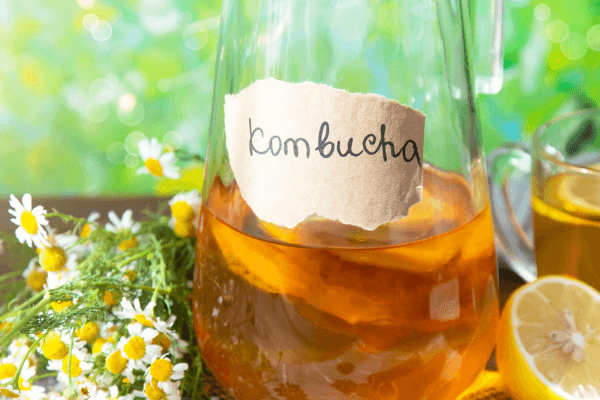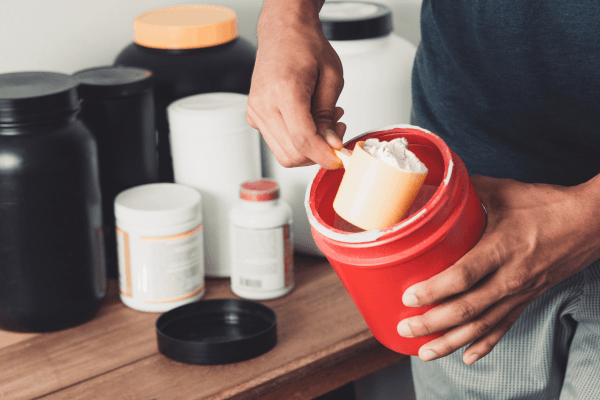What is Kombucha?
Kombucha is a refreshing beverage which is made using the fermentation of black tea (other varieties of tea such as green tea/oolong tea/blue tea can also be used). Kombucha has a slightly sweet and acidic taste. Sugar serves as the fermentation substrate for kombucha. This symbiotic process of tea leaves fermentation gives the tea fungus/SCOBY (Symbiotic Culture of Bacteria and Yeast).
Where does kombucha originate from?
Kombucha is known by different names across the world (Kocha kinoko in Japan, shenxian cu in China etc.). Kombucha is said to have been introduced to Western countries around World War 1. Around the 1950’s it became quite popular in Europe. A German doctor also used Kombucha as a cure for Diabetes, Cancer etc. Following that in 1995, a US based company was the first to commercially sell kombucha.
How is kombucha prepared?
The preparation of kombucha is divided into 2 phases:
1. Fermentation – Traditionally, kombucha fermentation required around 3-60 days. Sucrose is the main source of fermentation. Time, temperature and sucrose concentration determine the concentration of organic substances present in kombucha. This process also reduces or eliminates harmful pathogenic microorganisms.
2. SCOBY growth – Though the culture used for kombucha growth varies based on weather, location and fermentation medium, Acetobacter and Glucanobacter are the major microorganisms involved in making kombucha.
Here is the process of kombucha preparation:
- Dried tea leaves or tea bags are boiled in water for 10-15 minutes.
- Tea bags are removed
- Brown sugar is added and the tea is allowed to cool down to room temperature.
- A portion of previously prepared kombucha tea is added to adjust pH.
- Daughter SCOBY is added and is incubated for 7-15 days.
- The newly formed daughter SCOBY is removed and filtered.
- The bottle is closed and the kombucha drink is ready for consumption.
Beneficial components present in kombucha
The beneficial components present in kombucha are:
| Beneficial components | Health benefits |
| Polyphenols and flavonoids | Antioxidant propertyAntimicrobialAnti-inflammatory propertyAnticancer propertyAntidiabetic effectHelps reduce blood cholesterol level |
| Organic acids | Antioxidant propertyAntimicrobialAnti-inflammatory propertyIt also helps act as an acidity regulator for kombucha |
| DSL (D-Saccharic acid -1,4-lactone) | It is rich in antioxidants and also acts as a detoxifying agent |
| Ethanol | Helps prevent heart diseases. |
Apart from these organic components, kombucha is also rich in vitamins such as (vitamin B1, B2, B6, B12, C) and minerals like (Copper, iron, manganese, zinc etc.).
What are the health benefits of kombucha?
Animal and human studies suggest the following benefits of kombucha:
- Helps in blood purification/detoxification.
- May have a hypocholesterolaemic effect.
- May reduce risk of atherosclerosis.
- May help lower blood pressure.
- May have anti-inflammatory properties.
- May have anti-ageing properties.
- May improve liver markers.
- Acts as a natural antibiotic.
- May improve immunity, eye health, and metabolism.
- May improve gut health.
- May have an anti-diabetic effect.
- May improve menstrual health.
- Helps reduce alcohol cravings.
How much kombucha is safe to drink?
It is recommended to always gradually titrate the quantity of kombucha you consume. Following the serving size mentioned on the kombucha bottle is suggested.
Contraindications and side effects of kombucha
Though kombucha has many benefits, it is not a safe drink for individuals of all demographics.
It must not be consumed by:
- Children
- Pregnant and lactating mothers
- Individuals with compromised immune systems.
Though kombucha can be regarded generally to be safe, it can lead to symptoms such as nausea, dizziness, headache, lead poisoning, gastrointestinal toxicity, kidney failure, and metabolic acidosis.
Consuming kombucha made under unhygienic measures especially at home has a higher chance of cultivating bad bacteria rather than good bacteria. It is best to consume commercially prepared kombucha from reputed sources.
Tips to choose a healthy kombucha
- Choose an organic kombucha with live cultures.
- Opt for a kombucha with low sugar content (<10g/serving). Avoid those with high fructose corn syrup, artificial sweeteners etc.
- Avoid kombucha products with artificial ingredients, preservatives, colours and flavours.
- Choose a flavour of kombucha which suits your taste.
- Keep your kombucha in a dark, cool place.
- Increase the amount of kombucha you drink gradually at all times.
- Dispose kombucha which has expired.
Though kombucha provides tempting benefits, the probiotic benefits it offers does not surpass other fermented products such as sauerkraut, kimchi, yoghurt etc. Always get a heads up from a dietitian or doctor before you choose to consume kombucha.
Mayuri,
Dietetic Researcher, Simplyweight





